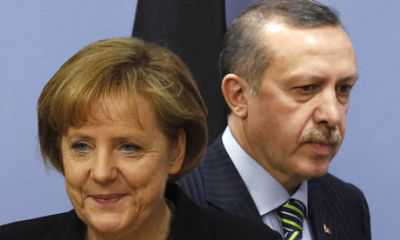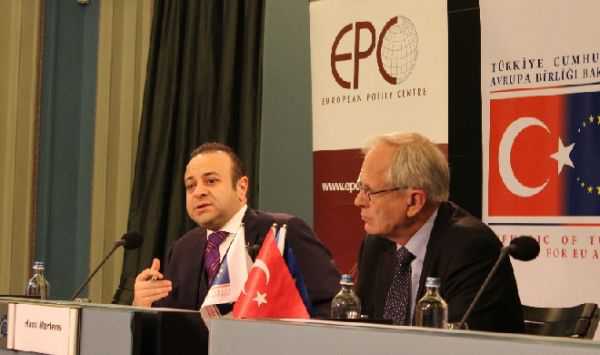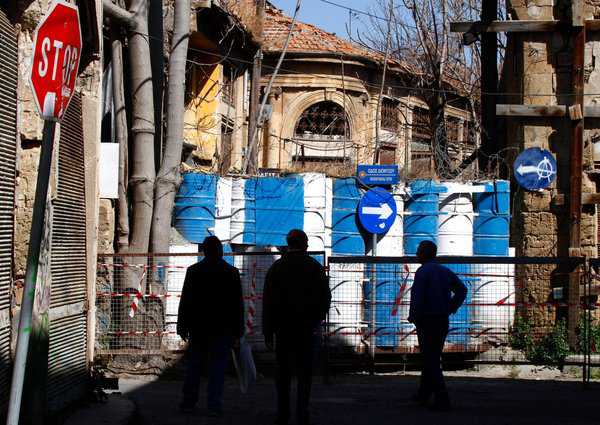
Speaking to Turkish daily Hurriyet, Chancellor Merkel was asked how long Turkey will have to wait to join the EU.
FAMAGUSTA GAZETTE • Monday, 06 May, 2013
German Chancellor Angela Merkel has called on Turkey to fulfil the requirements of the Customs Union deal and advance on normalising bilateral relations with the Republic of Cyprus.
In 2005, Turkey signed a protocol extending its customs union to EU states, but at the same time Ankara issued a declaration saying that its signature did not mean it had recognised the Republic of Cyprus. Turkey also refused to open its ports and airports to Cyprus.
Speaking to Turkish daily Hurriyet, Chancellor Merkel was asked how long Turkey will have to wait to join the EU.
“Negotiations with Turkey have being continuing since 2005. They are open ended,” Merkel said.
“One of the conditions for EU membership is that the candidate country abides by the EU’s common law and value system fully. This applies to Turkey too. Turkey should carry out a new reform process. When Turkey’s accession negotiations started, Turkey promised to fulfil all the requirements regarding the implementation of the Customs Union agreement with all EU member countries including Cyprus. If this condition applies, then it would have a positive impact on the membership process,” she added.
Meanwhile, the Ministry of Communications and Cypriot members of the European Parliament are coordinating efforts to promote Cyprus’ interests in the EU.
The main issue on the agenda is the need to lift the Turkish embargo on Cypriot flagged ships and planes.
Minister of Communications Tasos Mitsopoulos told reporters after his meeting with MEPs Eleni Theoharous, Andreas Pitsilides, Takis Hadzigeorgiou and Antigoni Papadopoulou that their discussion was useful, adding “we have asked for the contribution and help of our MEPs to handle sensitive issues such as the restrictive measures which Turkey imposes against Cyprus’ shipping and aircraft”.
They also examined ways to promote Cyprus’ interests in the EU and co-funding of projects from European structural funds and other EU programmes.
Mitsopoulos said the MEPs are willing to support government efforts, adding they pledged to contact their political groups to advance the issues.
Theoharous said the MEPs will continue their meetings with Mitsopoulos, adding “we will seek to solve all problems, mainly the repercussions of the Turkish occupation on air and sea transport in our country.”
She said the Turkish embargo creates an onerous economic issue on Cyprus and should be resolved the soonest.
Hadzigeorgiou said that MEPs should always coordinate with the state to tackle issues that are pending before the EU for the benefit of the country.
He described the Turkish embargo “a great issue”, adding “we have reached an era where this issue should be resolved and we are ready to see how to break the deadlock”.
In April 1987 Turkey imposed restrictions on Cypriot flagged vessels and in May 1997 Ankara issued new orders to extend the restrictions to include ships under a foreign flag which had any relation with the Republic of Cyprus.
These restrictions disrupt shipping and air traffic, in addition to causing huge financial and other problems.
Annual losses for Cyprus’ economy because of the restrictions amounted to 138,5 million euro in 2008, accounting for 1,3 % of the GDP (Gross Domestic Product).
The shipping industry records annual losses amounting to 100 m. euro. It is noted that 16% of the EU registered ships cannot dock at Turkish ports.
— Copyright © Famagusta Gazette 2013
via Merkel pushes Turkey on Cyprus customs snub.




